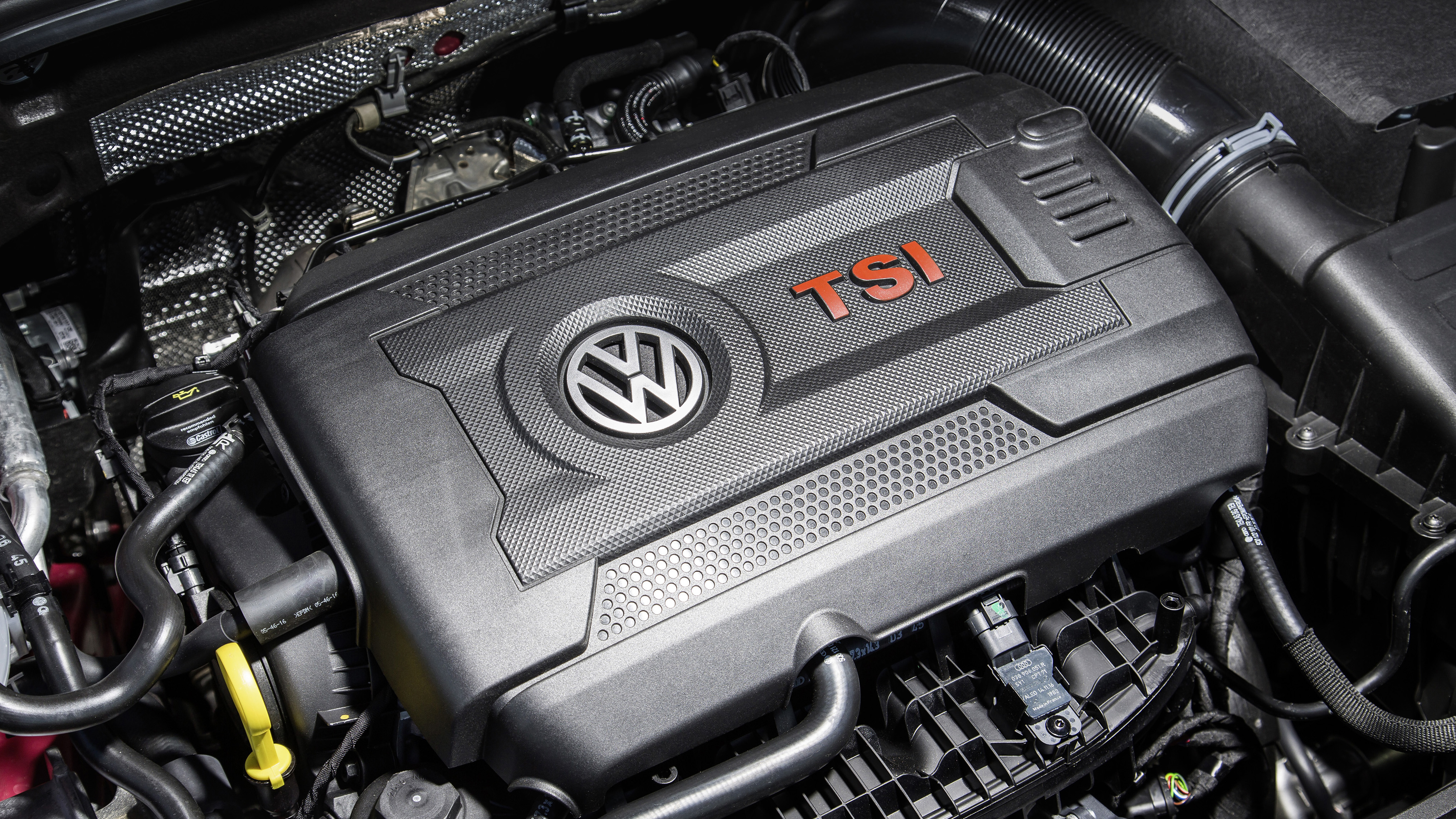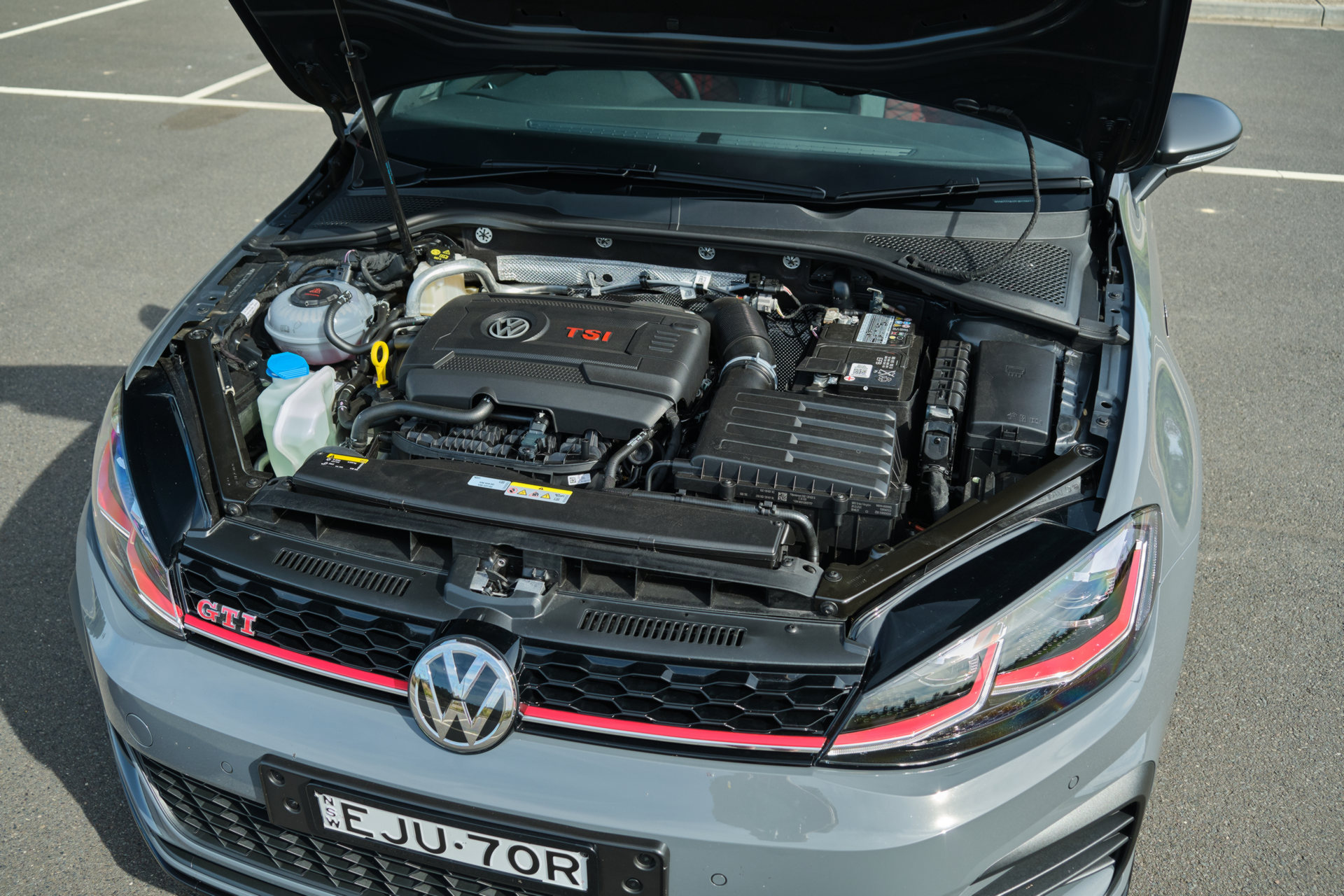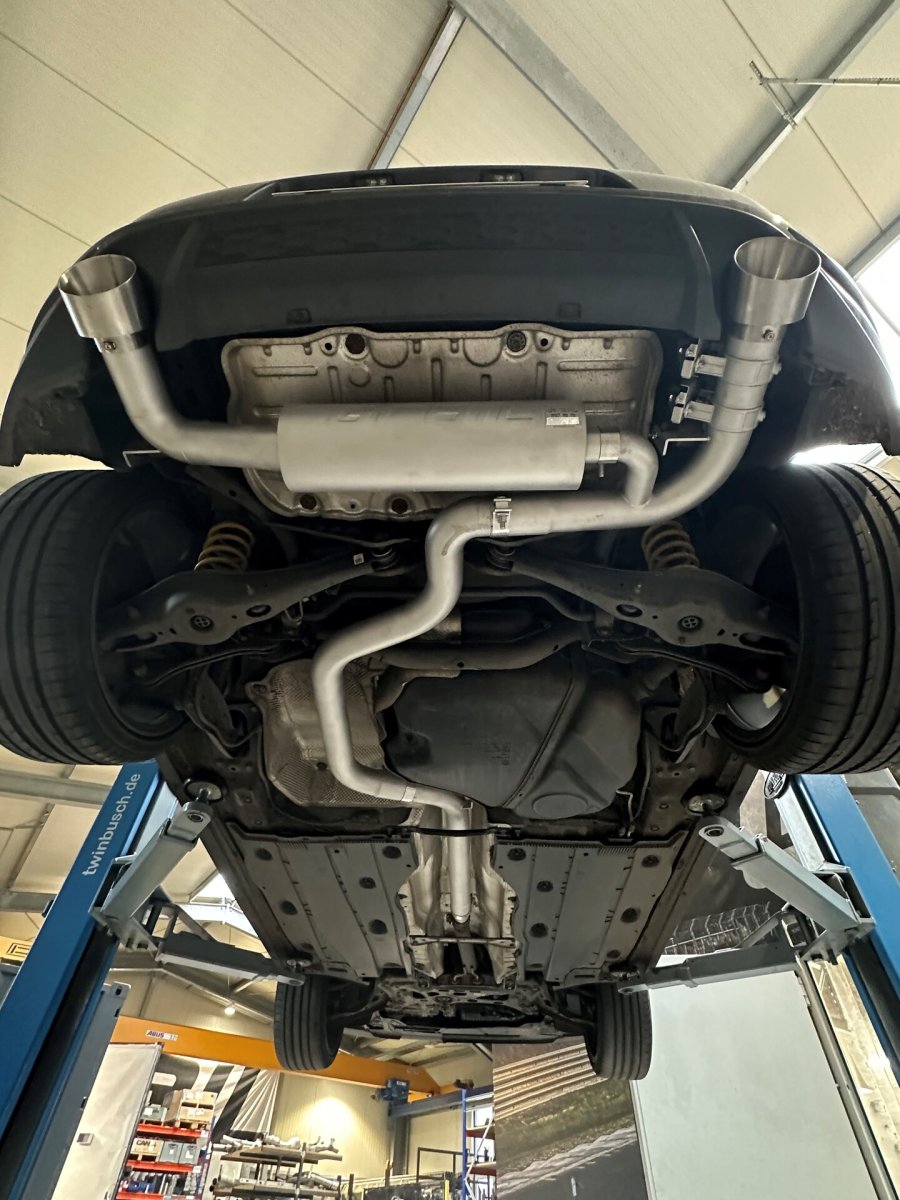The Pros and Cons of the Golf 7 GTI Engine: Is It the Right Choice for You?
The Pros and Cons of the Golf 7 GTI Engine: Is It the Right Choice for You?
Blog Article
Your Guide to the Golf 7 GTI Engine: Dependability and Upgrades
The Golf 7 GTI, outfitted with its 2.0-liter turbocharged inline-four engine, represents a balance of performance and dependability that attract fanatics and everyday motorists alike. Recognizing the elements that add to its stability, along with potential issues and their services, is important for maximizing the driving experience. Moreover, exploring various performance upgrades can considerably improve both power and effectiveness. The inquiry stays: what certain upgrades can transform your GTI into a truly exceptional vehicle while guaranteeing its durability?
Review of the Golf 7 GTI Engine
The heart of the Golf 7 GTI is its 2.0-liter TSI engine, a turbocharged four-cylinder that provides an outstanding mix of power and effectiveness. This engine produces a durable 220 horsepower and 258 lb-ft of torque, allowing the automobile to speed up from 0 to 60 miles per hour in simply 5.6 secs, showcasing its sporty personality. The turbocharged style not only boosts performance yet likewise optimizes gas efficiency, making it a sensible option for daily driving.
Integrating advanced modern technology, the engine features straight fuel shot, which improves combustion efficiency and minimizes emissions. Furthermore, the Golf 7 GTI is equipped with either a six-speed handbook or a six-speed DSG dual-clutch automated transmission, offering vehicle drivers with the versatility to pick their chosen driving design. The vehicle's front-wheel-drive design, incorporated with a well-tuned suspension, guarantees dexterous handling and a responsive driving experience.
Engine Dependability Variables
Reliability is a critical aspect of any type of performance-oriented lorry, and the Golf 7 GTI's engine is no exception. A number of aspects add to the overall dependability of this very regarded powerplant, which is vital for both day-to-day driving and perky performance.
First Of All, the Golf 7 GTI is furnished with a durable 2.0-liter turbocharged inline-four engine, understood for its reliable layout and strong design. This engine includes a created steel crankshaft and light weight aluminum engine block, which supply premium toughness and durability while reducing weight.
Second of all, normal upkeep plays an essential duty in boosting engine integrity. Sticking to the maker's advisable solution intervals, utilizing top notch lubes, and replacing vital components such as spark filters and plugs can dramatically expand engine life.
Moreover, the high quality of fuel used can additionally affect dependability. Premium gas is suggested to guarantee optimal efficiency and lessen the danger of knocking or detonation.
Last but not least, the automobile's electronic management system continually keeps an eye on engine parameters, enabling real-time modifications to optimize efficiency and effectiveness while safeguarding versus prospective concerns. Jointly, these factors emphasize the Golf 7 GTI engine's credibility for reliability amongst enthusiasts and day-to-day chauffeurs alike.
Usual Problems and Solutions
The Golf 7 GTI, while commemorated for its performance, is not without its obstacles. Among one of the most frequently reported concerns are engine oil consumption and turbocharger failings, which can considerably influence car integrity. Understanding these typical problems and their options is essential for preserving optimum engine performance.

Engine Oil Intake
While several lovers appreciate the efficiency of the Golf 7 GTI, engine oil consumption can become a significant concern. Proprietors may observe that their cars call for more regular oil top-ups than expected, commonly attributed to numerous factors integral in the engine's design and procedure.
One usual problem is the engine's straight fuel injection system, which can bring about enhanced oil intake due to the combustion procedure. Additionally, the use of high-performance driving behaviors can intensify oil burn-off, especially under hostile throttle conditions. Motorists might also experience oil leaks from gaskets and seals, which can add to reduced oil levels.
Routine oil adjustments using top quality synthetic oil can help keep optimum engine performance and longevity. If excessive intake lingers, it might be recommended to speak with a professional service technician to analyze the engine for prospective internal troubles, such as used piston rings or valve seals.
Turbocharger Failings
Turbocharger failings can substantially impact the efficiency of the Golf 7 GTI, causing decreased power and efficiency. Usual problems associated with the turbocharger consist of oil leaks, wastegate failure, and too much shaft play. Oil leaks often originate from worn seals or harmed gaskets, which can cause oil contamination and subsequent engine damages. Frequently inspecting these parts can help recognize and reduce such issues early.
One more widespread problem is wastegate failing, which can result in overboost or underboost problems. If left unchecked, this not only influences the car's efficiency but can likewise lead to serious engine damage. Updating to an extra robust wastegate can improve integrity and efficiency.
Excessive shaft play suggests wear in the turbocharger's bearings, which can cause a full turbo failure. Keeping an eye on increase stress and listening for unusual noises can aid detect this problem early.
To stop turbocharger failings, normal maintenance, including oil modifications and air filter substitutes, is critical. Additionally, buying premium aftermarket parts might give improved reliability and performance, ultimately improving the driving experience of the Golf 7 GTI.
Performance Upgrades to Think About
What efficiency upgrades can genuinely boost the driving experience of a Golf 7 GTI? To let loose the complete possibility of this legendary warm hatch, numerous targeted alterations can boost power, taking care of, and total driving satisfaction.
Among one of the most reliable upgrades is a high-performance turbocharger. Replacing the stock unit with an aftermarket option can significantly increase horsepower and torque, supplying an extra electrifying velocity here are the findings experience. Matching this upgrade with a performance intercooler helps maintain optimum temperature levels, making certain constant power shipment.
Next, consider updating the exhaust system. A much less restrictive exhaust not only boosts engine performance however also produces an extra hostile sound that amplifies the car's flashy character. Matching this with a remapped ECU will certainly enhance fuel delivery and ignition timing, more increasing performance.
Suspension upgrades, such as flexible coilovers, can enhance handling by decreasing the automobile's center of mass and lowering body roll. Additionally, a set of high-performance tires will certainly enhance grasp, enabling sharper cornering and improved total stability.
With each other, these upgrades can transform the Golf 7 GTI right into a much more thrilling and vibrant driving machine, making every trip a memorable experience. golf 7 gti engine.
Advised Maintenance Practices
Maintaining the Golf 7 GTI engine needs focus to essential techniques that guarantee optimum performance and durability. Regular oil modifications are essential for engine health and wellness, while prompt timing belt replacement is important to avoid possible failures. Executing these upkeep practices will assist maintain your vehicle running efficiently and successfully.
Regular Oil Modifications
Normal oil changes are vital for the optimum efficiency and longevity of the Golf 7 GTI's engine. Preserving a regular oil adjustment schedule guarantees that the engine runs efficiently and successfully. The recommended interval for oil modifications is commonly every 5,000 to 10,000 kilometers, depending on driving conditions and the type of oil utilized.
Utilizing high-grade artificial oil is crucial as it offers remarkable lubrication and thermal stability compared to traditional oils. This is specifically vital for the Golf 7 GTI, which includes a turbocharged engine that creates greater operating temperature levels. Normal oil changes help to eliminate impurities and sludge accumulation, which can compromise engine efficiency and result in early wear.
Additionally, fresh oil boosts gas efficiency and lowers damaging exhausts, adding to a cleaner environment. During the oil change procedure, it is additionally advisable to change the oil filter to ensure optimum purification and protect against any kind of debris from going into the engine. Adhering to these practices not just assists preserve the engine's integrity but additionally maintains the value of the car, making regular oil transforms a crucial element of responsible GTI possession.
Timing Belt Substitute
The timing belt is a vital component of the Golf 7 GTI's engine, in charge of integrating the rotation of the crankshaft and camshaft. This synchronization is important for optimum engine efficiency and efficiency. If the timing belt falls short, it can cause devastating engine damages, making prompt replacement critical.

When planning a timing belt substitute, it is recommended to also change the water pump and tensioner. These components function in conjunction with the timing belt and often experience comparable wear, guaranteeing optimal efficiency and longevity. Using OEM parts is advised for their reliability and compatibility with the Golf 7 GTI's engine.
Specialist setup is very motivated, as inappropriate setup can lead to serious engine breakdowns. Routine upkeep of the timing belt not only secures the integrity of the engine however likewise boosts the overall driving experience of the Golf 7 GTI. golf 7 gti engine. Prioritizing this job helps preserve lorry dependability and efficiency over time
Aftermarket Components and Alterations
Various fanatics turn to aftermarket modifications and parts to improve the efficiency and aesthetic appeals of the Golf 7 GTI. These upgrades can dramatically improve find out here now the automobile's responsiveness, taking care of, and overall driving experience. Popular adjustments consist of high-performance air consumptions, exhaust systems, and intercoolers, which can increase horsepower and torque by enhancing air consumption and exhaust circulation.
Suspension upgrades are also common, with choices varying from decreasing springs to fully adjustable coilover sets that boost adventure quality and cornering capability. Upgraded brakes, including performance pads and blades, can give far better quiting power, ensuring safety and control during spirited driving.
Aesthetic adjustments, such as aftermarket wheels, body sets, and custom-made illumination, enable proprietors to customize their automobiles while keeping a flashy appearance. Engine adjusting, whether via ECU remapping or standalone engine monitoring systems, can open extra efficiency capacity, making the GTI even much more thrilling to drive.
While aftermarket adjustments can produce considerable benefits, it's necessary to choose trusted brands and consider the potential effect on service warranty and integrity. Appropriate setup and tuning are essential to ensure the long life of the lorry while appreciating the improvements.
Enhancing Fuel Performance
Improving gas effectiveness in the Golf 7 GTI can lead to significant price savings and a decreased ecological effect. Accomplishing visit here better gas economic climate requires a mix of driving practices, maintenance methods, and tactical modifications.
One reliable method is taking on a smooth driving style, avoiding fast acceleration and hefty braking, which can dramatically minimize fuel intake. Maintaining optimum tire pressure is additionally important; under-inflated tires can increase moving resistance, leading to lowered efficiency. Normal servicing, including engine adjusting and air filter replacements, makes certain that the engine operates at peak efficiency, further improving gas economic climate.
For those looking for upgrades, take into consideration a performance song that concentrates on effectiveness as opposed to sheer power. Eco-mode settings, if readily available, can adjust throttle action and shift indicate make best use of fuel cost savings. In addition, lightweight aftermarket wheels can minimize weight and boost efficiency without jeopardizing efficiency.
Last but not least, employing aerodynamic improvements, such as a front splitter or back spoiler, can decrease drag at greater rates, adding to better fuel economic climate. By applying these strategies and modifications, Golf 7 GTI proprietors can enjoy enhanced fuel effectiveness while preserving the lorry's perky driving characteristics.
Conclusion
In conclusion, the Golf 7 GTI engine exemplifies a mix of efficiency and reliability, driven by a well-engineered 2.0-liter turbocharged inline-four. Various efficiency upgrades and aftermarket alterations can improve driving experience while maintaining dependability.
The Golf 7 GTI, outfitted with its 2.0-liter turbocharged inline-four engine, stands for a balance of performance and integrity that charms to enthusiasts and day-to-day motorists alike. Routine oil changes making use of top notch synthetic oil can aid preserve optimal engine efficiency and durability.Normal oil modifications are crucial for the ideal performance and long life of the Golf 7 GTI's engine. Regular maintenance, including engine adjusting and air filter replacements, ensures that the engine runs at peak performance, additionally enhancing gas economy.

Report this page